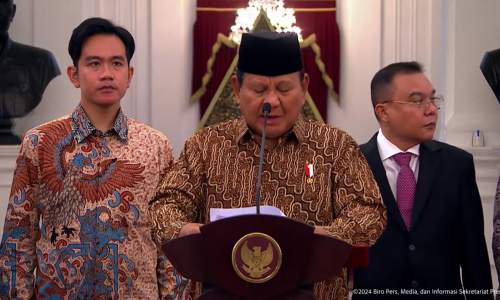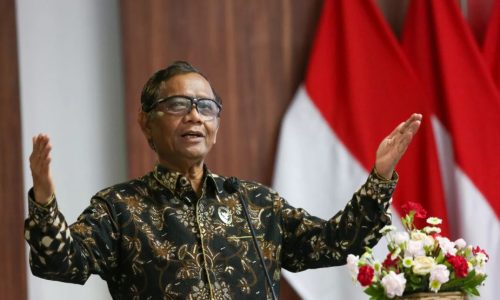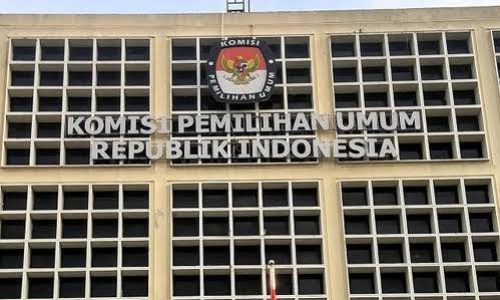Indonesia has the potential to create 96 thousand jobs by increasing the capacity of clean energy and reduce the dependence on fossil fuels in coal-producing regions in East Kalimantan, South Kalimantan and South Sumatra.
The economic potential is revealed in the latest report of global energy think tank EMBER: Indonesia’s Expansion of Clean Power can Spur Growth and Equality. This report analyzes Indonesia power utility PT PLN’s 2021-2023 electricity procurement plan and Comprehensive Investment and Policy Plan of Just Energy Transition Partnership. This report explores strategy to include just energy into energy plan at provincial level.
In reference to the report, the construction of renewable energy projects can help the transformation of coal producing regions, such as East Kalimantan, South Kalimantan and South Sumatra, which are threatened by massive layoffs due to the termination of coal mines following global energy transition.
“Indonesia’s energy transition can become fairer by transforming into sustainable energy and focusing on renewable energy in the impacted regions, so it can create new opportunities and increase the people’s and the regions’ competitiveness,” Dinita Setyawati, Senior Power Policy Analyst at EMBER Southeast Asia, said in a statement on Tuesday, August 20, 2024.
Based on the latest electricity procurement plant, the renewable energy projects with total capacity of 21 gigawatt (GW) will be added until 2030. Besides, the Comprehensive Investment and Policy Plan of Just Energy Transition (CIPP-JETP) will increase the target of additional renewable energy capacity of 36 GW. The result of EMBER analysis , the construction of renewable energy 2.7 GW in East Kalimantan, South Kalimantan and South Sumatra in the existing plan can create 50 thousand jobs and attract investment worth US$4.3 billion.
Therefore, bigger benefit can be secured by cancelling the construction plan of 2.33 GW of coal fired power plants in the three regions and replace them with 5.8 GW solar power plant. This measure will create 46 thousand additional jobs and attract double investments.
Totally, the acceleration of renewable energy in East Kalimantan, South Kalimantan and South Sumatra will attract more than US$ 9.4 billion in investment and create 96 thousand high skill jobs. This measure will reduce CO2 emission to 18 million tons in the three areas, from the current 30 million tons hailing from methane of coal mine and coal fired power plants.
“Energy transition gives opportunity to reduce dependency on coal and develop green economy in the coal producing regions and avoid emission from coal in the areas. Including the JETP target into the policy and national and regional planning becomes the first measure in realizing the potential,” Dody Setiawan, Senior Climate and Energy Analyst at EMBER Indonesia, said.
Mada Ayu Habsari, Chairperson of the Indonesian Solar Energy Association (AESI), stated, “The use of solar power can be the backbone of the energy transition, not only in terms of energy mix but the domino effect caused, including increased employment in the field of green jobs. In addition, if demand grows, the solar industry will also grow, and this is Indonesia’s strength.”
Another finding in the EMBER report is that Indonesia needs to reconsider the construction of new power plants, to avoid the high risk of stranded assets. This is because, with electricity demand projected to increase 4.7 percent per year referring to 2023 data, electricity generation is expected to exceed demand by 42 terawatt hours (TWh) in 2030. This means that even without new power plants, Indonesia can meet its electricity demand by 2030.
Since the introduction of the National Energy Policy (KEN) in 2014, fossil fuels have grown rapidly and supply up to 81 percent of Indonesia’s electricity. The use of fossil fuels, particularly coal, increased significantly in the last decade. From 2013 to 2023, fossil fuel generation increased by 50 percent, leading to an increase in power sector emissions by 86 million tons of CO2.
This year, Indonesia will launch a new National Energy Policy ( KEN ) that aims to improve energy security and promote the energy transition, with the goal of peaking emissions by 2035 and reaching net zero by 2060. However, the renewable energy target is expected to be reduced from 23 percent to around 17-19 percent by 2025.









